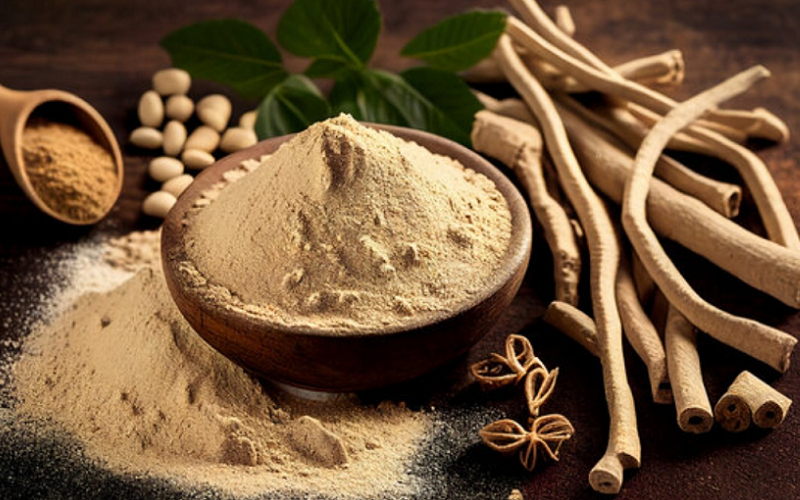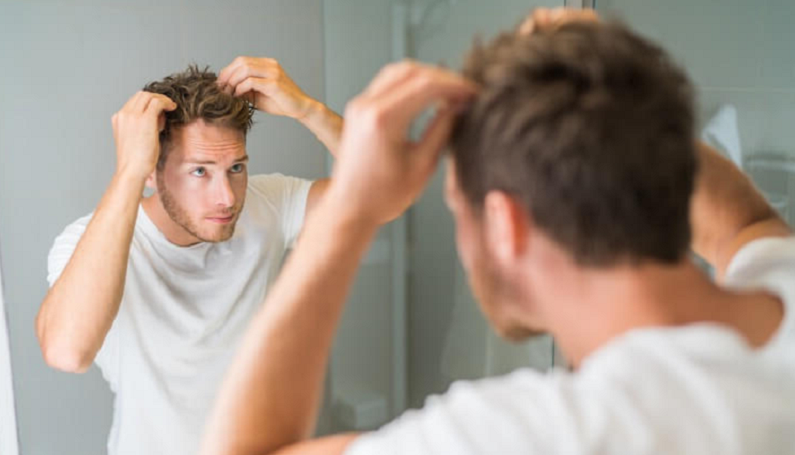
Ashwagandha has captivated the wellness community with its remarkable health benefits. Rooted in ancient Ayurvedic medicine, this adaptogenic herb promises to alleviate stress, enhance energy levels, and improve overall health. However, with the rising popularity of any dietary supplement comes the imperative need to thoroughly understand its effects, both positive and adverse. While Ashwagandha is celebrated for its myriad benefits, it is crucial for consumers to be fully informed about all possible side effects, including any impact it may have on hair health.
Contents
Understanding Ashwagandha
Ashwagandha is more than just a supplement; it is a storied herb that has been used for thousands of years in Ayurvedic healing practices. Known for its stress-reducing properties, it has gained significant attention in the West as a natural way to combat anxiety, improve cognitive function, and support physical well-being. Its adaptogenic qualities, which help the body manage stress, make it a sought-after ingredient in a variety of nutritional supplements.
The efficacy of Ashwagandha can be attributed to its complex blend of phytochemicals, including withanolides, alkaloids, choline, fatty acids, amino acids, and a variety of sugars. Among these, withanolides are believed to be the most active compounds, contributing to the herb’s anti-stress, neuroprotective, and anti-inflammatory effects. These compounds interact with the body’s neuroendocrine system, modulating the production of stress hormones such as cortisol.
The Connection Between Supplements and Hair Health
Nutritional supplements, whether taken for stress relief, energy enhancement, or general health, can have direct and indirect effects on hair growth and loss. This connection hinges on the complex interplay between nutrients, hormonal balance, and the physiological stress response, all of which can influence hair health.
Overview of Factors Contributing to Hair Loss
Hair loss can stem from a myriad of factors, ranging from genetic predispositions to lifestyle choices. Key contributors include hormonal imbalances, particularly those involving thyroid hormones and androgens, nutritional deficiencies, stress, and certain medical conditions. Even the natural aging process can play a role. It’s important to note that hair growth is a sensitive barometer for the body’s internal balance. As such, disruptions in the body’s equilibrium, whether due to illness, stress, or dietary deficiencies, can manifest as changes in hair health [1].
How Supplements Can Influence Hair Growth and Loss
Supplements can impact hair health in two primary ways: through the provision of essential nutrients that support hair growth and by influencing the body’s hormonal and stress responses. Nutrients such as vitamins A, C, D, E, zinc, iron, and protein are vital for hair growth and maintenance.
A deficiency in any of these nutrients can lead to hair weakening or loss. Conversely, excessive intake of certain vitamins and minerals can also contribute to hair loss, highlighting the need for balanced supplementation. Supplements like Ashwagandha that affect the body’s stress response can indirectly impact hair health. By potentially reducing stress levels and modulating hormone production, these supplements may influence hair growth and loss patterns.
Scientific Perspective on Supplements and Dermatological Effects
The scientific community has shown increasing interest in the relationship between dietary supplements and dermatological health, including hair growth. Research suggests that supplements providing essential nutrients can support hair health, while adaptogens like Ashwagandha may offer benefits through stress reduction and hormonal balance [2].
However, the evidence is nuanced, with studies indicating that the effects of supplements can vary widely depending on an individual’s baseline nutritional status, hormonal profile, and overall health. It’s also worth noting that most research on supplements and hair health focuses on their potential to promote hair growth or prevent hair loss, rather than causing it.

Investigating Ashwagandha and Hair Loss
With a foundational understanding of Ashwagandha and the general interplay between supplements and hair health, we now turn our focus directly to the core question: Can Ashwagandha cause hair loss?
Review of Scientific Studies on Ashwagandha and Hair Health
To date, the scientific literature on Ashwagandha’s direct effects on hair loss is sparse. Most research has concentrated on its stress-reducing, anti-inflammatory, and antioxidant properties, with few studies explicitly examining its impact on hair health. However, some indirect evidence can be gleaned from studies on stress and hair loss.
Given Ashwagandha’s proven efficacy in reducing stress and cortisol levels—both of which are linked to certain types of hair loss such as telogen effluvium — it could be hypothesized that Ashwagandha might actually support hair growth rather than causing hair loss. Yet, without targeted research, this remains speculative.
Anecdotal Evidence: User Reports and Experiences
In the absence of extensive scientific data, anecdotal evidence from individuals who have used Ashwagandha offers additional insights. Online forums and health blogs contain mixed reports, with some individuals attributing improved hair health and growth to their use of Ashwagandha, while a minority report experiencing hair shedding or thinning after beginning the supplement. It’s important to approach these anecdotal accounts with caution, as numerous factors, including dosage, individual health conditions, and concurrent use of other supplements or medications, can influence these outcomes [3].
Analysis of Possible Mechanisms: Stress Reduction and Hormonal Balance
Exploring the biological mechanisms behind Ashwagandha’s effects provides a potential explanation for its impact on hair health. The herb’s adaptogenic properties help modulate the body’s stress response, potentially mitigating stress-related hair loss. Ashwagandha is known to influence hormonal balance, including the thyroid and adrenal glands, which play critical roles in hair growth and health. For individuals with underlying hormonal imbalances, adjusting these levels could inadvertently affect hair health, positively or negatively.
Given the complex nature of hair growth and loss, attributing changes directly to Ashwagandha without considering the broader hormonal and health context can be misleading. While the existing evidence does not conclusively prove that Ashwagandha causes hair loss, the possibility warrants further investigation, especially in individuals with specific hormonal vulnerabilities or those using high doses of the supplement.
References
[1] Effects of Withania somnifera root extract serum application on hair health in healthy adults
[2] 5 Ways To Use Ashwagandha For Strong And Healthy Hair
[3] Can topical ashwagandha help with hair loss?
